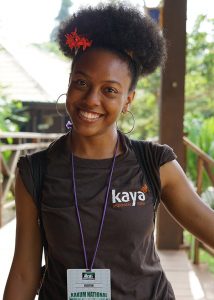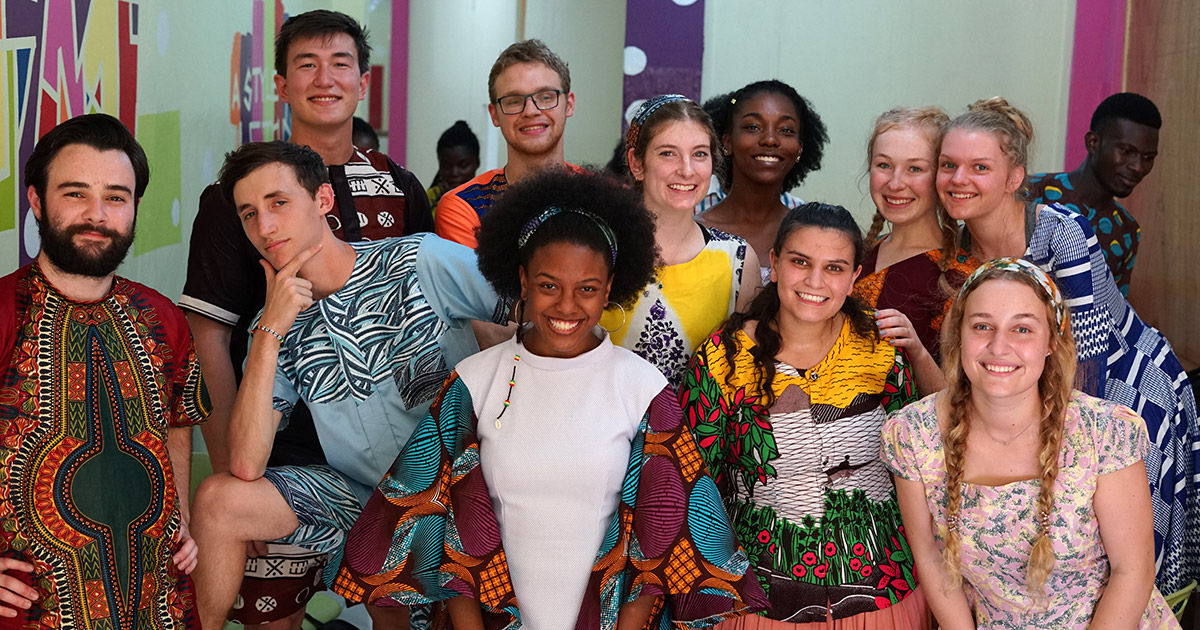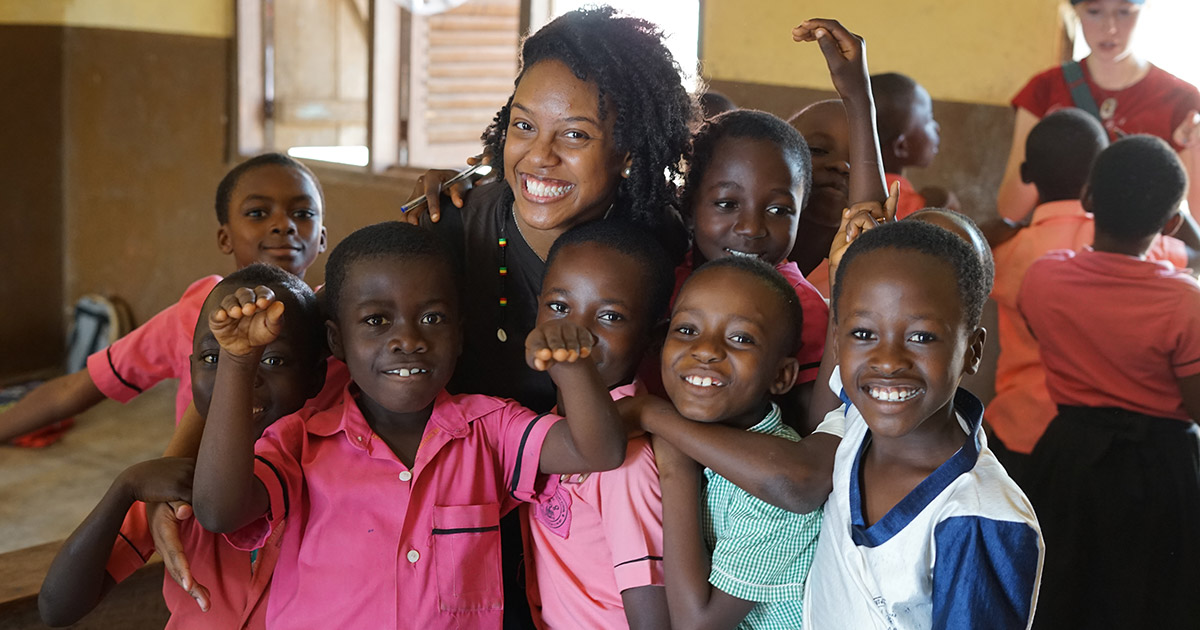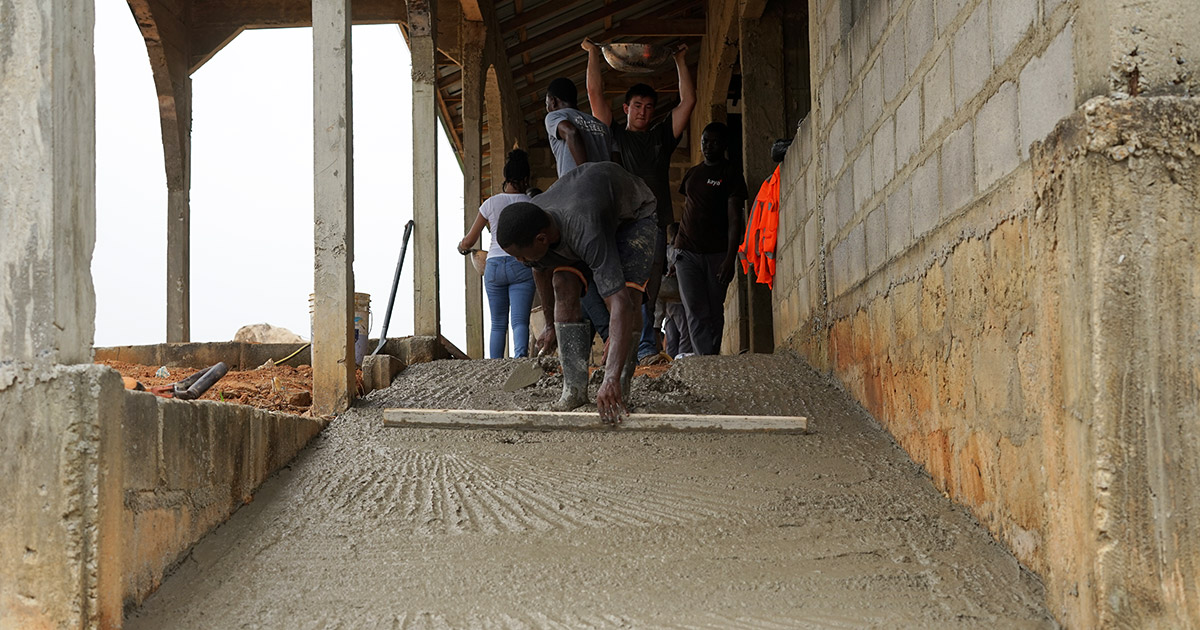Carmen Hall: Student Report from 2019 Alternative Winter Break to Ghana
Experiencing Ghana for the first time—especially as an African American—had to have been the most life-altering experience in all my 22 years. For the first time, I had stepped foot on the land from which my ancestors came. Wow. In all honesty, it takes quite a bit of effort to move me. However, the minute the plane landed at Kotoka Airport in Accra, Ghana, I knew at that moment that I wasn’t going to return to the US the same. Not to sound cliché, but I really felt at home there in Cape Coast. There was definitely something there that was pulling me in.
 From interacting with the most genuine locals (including our guides, Patrick, Amos, and John) to digging a bit deeper into my history at both Elmina and St. George’s castles, to having new culinary dishes, such as Red Red and Peanut Butter Soup, to having my own custom-made Ghanaian dress, I have to say these adventures were just the tip of the iceberg in experiencing the full culture of this beautiful country. Nevertheless, the anchors, in my opinion, that held down all the knowledge and information that I was gaining had to have been our service projects. By working through the projects and touring both the technical institute and the technical university, I had a revelation: I was receiving a holistic perspective of engineering, while simultaneously experiencing engineering in its purest form. It was mind-blowing! Allow me to elaborate.
From interacting with the most genuine locals (including our guides, Patrick, Amos, and John) to digging a bit deeper into my history at both Elmina and St. George’s castles, to having new culinary dishes, such as Red Red and Peanut Butter Soup, to having my own custom-made Ghanaian dress, I have to say these adventures were just the tip of the iceberg in experiencing the full culture of this beautiful country. Nevertheless, the anchors, in my opinion, that held down all the knowledge and information that I was gaining had to have been our service projects. By working through the projects and touring both the technical institute and the technical university, I had a revelation: I was receiving a holistic perspective of engineering, while simultaneously experiencing engineering in its purest form. It was mind-blowing! Allow me to elaborate.
I believe it was the first full day of our trip—Monday—that we went to tour Cape Coast Technical Institute and Cape Coast Technical University. This was the day I received a holistic view of my own industry. At Cape Coast University, we were able to go around campus with our tour guide and venture into their classrooms and laboratories. I found their work areas notable, because they had so many tools and resources on which to operate. To compare this school to UT, I noticed that here at home, our curriculum is very textbook and conceptually-based, whereas, at the Technical University, their regular classrooms were centered around the resources they used for what looked like a very hands-on curriculum. Specifically, at Cape Coast Technical Institute, we witnessed classrooms filled with apparatuses for designing and repairing. For example, their woodshop was set up with building machines and all of these wooden fixtures, such as a podium, a banister, and some chairs, all of which the students had made in class. Not only are the students at both these institutions being taught to use this equipment at full capacity, they are also taught to repair them. Usually in the states, if a machine at school breaks down, it might cost more to fix, so we just replace it with a more reliable machine. I concluded that the Technical Institute and University we visited may not have the same level of funds that American schools have, so being taught to repair their own resources for sustainability is one heck of an investment—for both the schools and the students. That was definitely the coolest part to me.
Now, when I mentioned experiencing engineering in its “purest” form, that’s exactly what I meant. In the US, I am accustomed to thinking about computers or large machinery when I hear the word “engineering.” When the Egyptians built the pyramids long ago, there were no cranes, no forklifts, or any supercomputers. They had their blocks, cement, and simple machines—all of which, they made themselves. So with that, on a few of our service projects, it absolutely blew my mind to see these Ghanaian teenagers hauling these large stones and blocks, as well as mixing rocks and soil to create this mortar-like substance. Engineering at its purest!
That experience at that work site, along with the day we went to work on the orphanage, taught me so much about engineering. There was not very much math and physics calculations involved in what we were doing, but I truly felt like an engineer during our service projects in Cape Coast. A problem was presented to me; I learned about the reliable solutions that would fix the problem and how to implement—or build, as we did—said solutions. Simultaneously, I learned about building in a way to where your reliable solutions are sustainable as well. Wow! What an experience!
I’m definitely going to be returning to Ghana.


